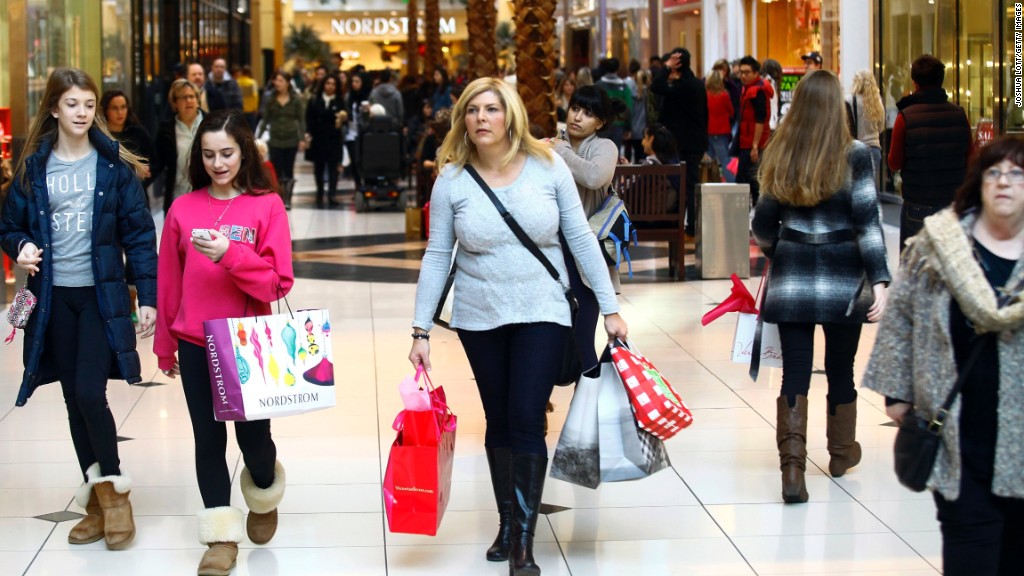
This holiday season wasn't the Christmas miracle that retailers were hoping for, but sales were slightly higher in December.
Retail sales ticked up 0.2% in December, according to a report from the Census Bureau. Economists were expecting sales to be flat from November.
November sales, however, were revised lower. The government said sales grew by 0.4% in November from October, down from the 0.7% it had originally reported last month.
The number was lifted by strong sales in food, clothing and accessories and gasoline -- necessities or gifts on the lower end of the price spectrum. Sales at nonstore retailers, which includes online shopping, increased by 1.4%.
But big-ticket items that are generally considered staples of the holiday season weighed on the number. Sales at electronic and appliance stores fell by 2.5%, and auto dealers saw a 1.9% drop.
Related: Macy's laying off 2,500
Experts say that weather could have played a part in what sold, and what didn't sell, last month.
"If you look at what lifted spending -- food, gasoline, clothing, online shopping -- are all things you can expect to increase when the weather is bad," said Joseph LaVorgna, chief U.S. economist at Deutsche Bank. "Harsh weather could have hurt some of the bigger discretionary items."
LaVorgna also said that these better-than-expected numbers should calm investors who were anxious after last week's lackluster jobs report. The government reported that hiring slumped sharply in December, making it the weakest month for job growth since January 2011, the Labor Department said last week.
There were signs of weakness for retailers beginning Thanksgiving weekend, the start of the of holiday shopping season. The National Retail Federation reported that shoppers spent an average of 4% less over that holiday weekend, the first time spending declined since 2009, when the recession cut deeply into spending.
Industry analyst ShopperTrak reported a modest 2.3% increase in spending on Thanksgiving day and Black Friday.
Related: Target and Neiman Marcus hacks: The latest
Analysts had long expected holiday sales to be sluggish this year. In November, Morgan Stanley predicted that sales growth during the fourth quarter would be the weakest since 2008.
The calendar was also expected to hurt sales, since there were six fewer shopping days between Thanksgiving and Christmas this past holiday season compared to a year earlier. This means that there were not only fewer opportunities for shoppers to get to stores, but also that stores would likely cut prices earlier and in a bigger way to try to lure customers in to make up for it.


